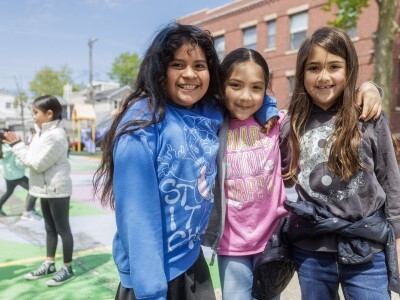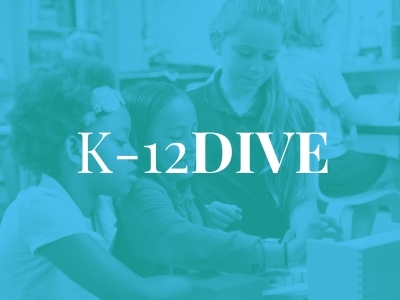On Becoming Mindful in the Classroom
Topics
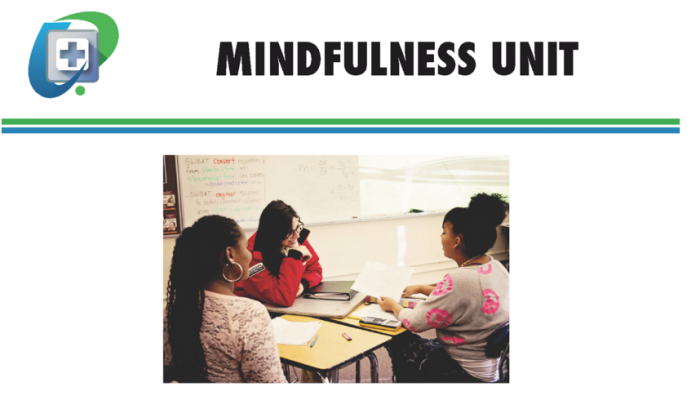
Today’s learners face an uncertain present and a rapidly changing future that demand far different skills and knowledge than were needed in the 20th century. We also know so much more about enabling deep, powerful learning than we ever did before. Our collective future depends on how well young people prepare for the challenges and opportunities of 21st-century life.
Teachers using Generation Schools Network’s mindfulness training and curriculum like that it helps students focus on the task at hand, and they appreciate its strong research base.
Many next gen schools that offer breakthrough designs in learning integrate the latest in brain science and research on learning. For parents, enrolling in a next gen school means more attention to instructional strategies that are best suited for their child, attention to the social-emotional needs connected to learning, and caring teachers with an appreciation for cultural awareness, community-building, and nurturing a sense of belonging. Some of these strategies get more press than others. Mindfulness deserves a lot more attention.
Generation Schools Network (GSN) recently developed a mindfulness teacher training with an accompanying curricular unit. Pagosa Springs Elementary School (PSES), located in a rural mountain town in Colorado, is implementing it daily with students. The program is intended to help students and teachers develop the ability to be present through moment-to-moment awareness during the busy school day. “It’s a way of clearing the clutter, calming the mind, and becoming focused,” explained Leslie Tjajadi, manager of Whole Student Success at GSN and one of the co-authors of the mindfulness training and unit. With 60-70 percent of the 530 students at PSES qualifying for free- or reduced-price lunch, the school is committed to practices that support improved relationships and overall wellbeing.
GSN Senior Director of Implementation and Coaching and former PSES Principal Kate Lister shared that Pagosa teachers initiated an advisory program last year. This year, they chose to implement 25-minute mindfulness practices two days a week. “Students learn how to handle frustrations and to observe their thoughts and feelings without becoming derailed by them,” Kate shared with me. She enthusiastically added, “Behavior incidents at Pagosa have decreased by 30 percent.” With only one dedicated staff counselor, the added support of a school-wide approach to implementing a strong advisory program and using mindfulness tools greatly expands the overall culture of support for students.
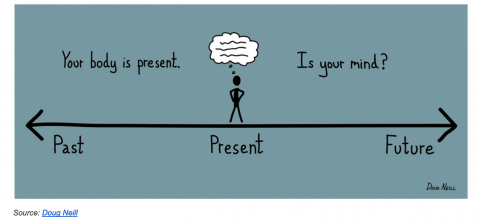
“Teachers like the purposeful focus with students on the task at hand, and they appreciate the strong research base for mindfulness,” Leslie offered when asked how the program is being viewed by teachers at Pagosa. “The curriculum was built around brain science and addresses how the brain really works.”
It may be surprising to learn that the brain wants to focus on the negative. In most everyone, the brain wants to wander and churn…recycling the past and anticipating future events. It has to be taught to pause or rest. Mindfulness practices engage the brain in focusing on the present moment, right now. Quieting down and paying attention to the breath is one way to do that. “Research shows that meditation changes your brain, increasing grey matter in areas responsible for learning and memory and decreasing grey matter in areas responsible for anxiety and stress. The benefits include increased empathy, increased capacity for memory and learning, and better focus,” reported Leslie in a matter-of-fact tone. It’s true there’s growing evidence for the benefits of this practice and mindfulness approaches are visibly present in our everyday world. Now, classes are available in many workplaces and community centers; loads of downloadable guided resources and DIY apps are at our fingertips.
What’s new and exciting is that in creating the mindfulness unit, GSN has made the benefits of mindfulness available to the schools in their network and is providing ongoing support for the use of these tools. They built on earlier work done in the United Kingdom by the Mindfulness in Schools Project (MiSP). GSN’s curriculum includes five lesson plans and a project. The unit also cites additional research and resources such as those provided by Greater Good, a University of California, Berkeley-affiliated social science research hub.
Through a partnership with the Battelle for Kids network of SOAR Schools, the mindfulness unit is also being used in Ohio. Feedback from teachers surveyed indicated that they felt the unit was beneficial and could be incorporated into already existing activities throughout the school day. One 7th grade teacher has been implementing a “mindful minute” with her students every day since the GSN presentation last December; she recently reported, “My students have responded so well that they are starting to research their own mindful activities to implement!”
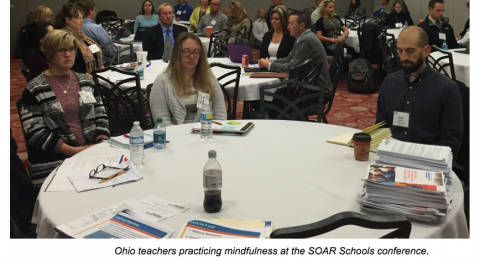
Katie Peyton who co-authored the professional development on mindfulness with Leslie and works with SOAR schools reflected on how they got started in Ohio:
“We held a conference session that was standing room only, and led a three-minute mindfulness exercise. It’s really best to experience mindfulness firsthand; and, the biggest benefits come with continued practice. But even in that short time, we had teachers raving to us. Let’s face it, teachers are really stressed out; and, they need these brain breaks as much as the kids!” More importantly, she noted, “Anyone can benefit from mindfulness—rich, poor, struggling, top of the class…. It’s about managing and reducing stress and worry over the next thing or the last thing you did or didn’t do… it’s a strategy that helps our kids and our teachers be healthier and happier. Who doesn’t need that?”
Special Invitation: Generation Schools Network offers professional development and curricular units on many social-emotional learning (SEL) topics to help teachers and schools implement a strong advisory program. The mindfulness unit and training is one example. GSN is offering their mindfulness unit free to any interested school team that is willing and committed to trying it out and providing feedback so it can be improved. The unit will be available to be used in your school but may not be copied or redistributed. This is a limited time offer available until May 1, 2016. If you are interested, please send a request to Katie Peyton.



